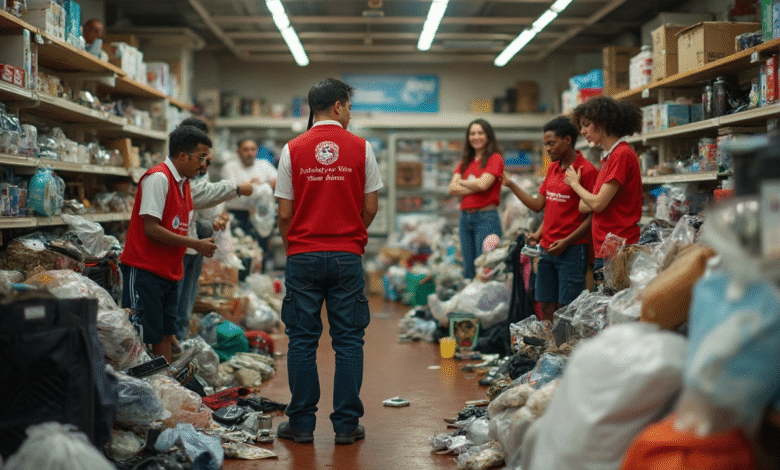What Items Do Charities Actually Accept and Why Some Items Are Rejected

When residents of Chicago schedule a donation pickup service, they often expect that any unwanted item in good condition will find a new home. Yet many charities follow strict guidelines about what they can and cannot accept. Understanding these guidelines helps donors avoid wasted effort, reduces strain on donation crews, and ensures that contributions genuinely help those in need.
Common Items That Charities Decline
Charities frequently turn away common household items, which surprises many people. Large furniture pieces, especially those with visible wear or damage, are often rejected because they cannot be resold or reused safely. Sofas with torn fabric, mattresses with stains, and recliners with broken frames are all difficult for charities to place. Upholstered items also pose hygiene challenges, as they may harbor allergens or pests.
Appliances represent another category with limitations. Charities often refuse items such as refrigerators, washers, or microwaves that do not work properly or fail to meet current safety standards. In some cases, energy-inefficient models are excluded because they cannot be legally resold or donated through specific programs.
Children’s products are subject to even stricter rules. Many charities will not accept car seats, cribs, or highchairs because of liability concerns and evolving safety regulations. Toys may be declined if they contain small parts, peeling paint, or missing components. These restrictions help protect the families receiving donations and reduce the risk of harm or product recalls.
Other frequently rejected items include mattresses, box springs, and used bedding. Even when these are clean, most donation centers cannot process them due to sanitation laws. Similarly, open containers of cleaning supplies, personal care products, or food items are always refused.
Why Charities Have Strict Donation Policies
Charitable organizations operate within legal, logistical, and ethical boundaries that shape their acceptance criteria. Each donated item must be safe, clean, and usable. Storage capacity also influences what a charity can handle. Donation centers in cities such as Chicago often have limited warehouse space, so they must prioritize items that can be resold or distributed quickly. Large, bulky pieces that do not move soon occupy valuable room and reduce the organization’s ability to manage inventory efficiently.
Safety is another major consideration. Items with sharp edges, electrical defects, or missing parts may present hazards to staff, volunteers, or recipients. For this reason, donation centers conduct visual inspections and occasionally functional tests before accepting furniture or appliances. If a piece fails those checks, it must be disposed of at the organization’s expense, which reduces funds available for community programs.
Legal regulations further restrict what can be accepted. Federal and state safety standards govern many categories, including electronics, children’s items, and upholstered furniture. Nonprofit organizations must comply with these rules or risk fines, liability claims, and loss of public trust.
Finally, ethical responsibility plays a role. Charities aim to maintain dignity and respect for the people they serve. Accepting worn-out or unsafe items undermines that goal and can create a negative impression of the donation process. These standards ensure that recipients receive goods they can use with confidence and pride.
Preparing for a Successful Donation
Donors can take several practical steps to make the process smooth and efficient. Start by scrutinizing each item. Furniture should be free of tears, stains, and strong odors. Appliances should function properly, with all parts intact. If you are uncertain about whether an item meets donation standards, contact the charity before scheduling a pickup. Many organizations publish updated lists online that specify what they can accept.
When scheduling a donation pickup service, provide accurate details about the items. Describe dimensions, condition, and location within your home. This allows the pickup team to plan the truck space and ensure they can safely move the items. Clearly label items for donation and keep them separate from other items to prevent confusion.
Timing also matters. Donation trucks typically follow tight routes through multiple neighborhoods. Being ready at the scheduled time prevents delays and helps the organization stay on schedule. If you cancel or reschedule without notice, it can waste fuel, staff time, and the opportunity to serve other donors that day.
Reducing Waste and Supporting the Mission
When donations are rejected, they must often be disposed of at the donor’s expense. To prevent this outcome, consider pairing donation efforts with professional junk removal services. Companies that specialize in junk removal and donation coordination can identify which items are eligible for charitable reuse and which should be responsibly recycled or discarded. This approach conserves resources, reduces landfill waste, and supports the operational needs of local charities.
By understanding what charities accept and why they have those rules, donors can contribute more effectively. Thoughtful preparation ensures that each item donated truly benefits someone in need rather than becoming a burden for the receiving organization.
For those in Chicago seeking a reliable way to manage furniture, appliances, and other large items, Junk or Donate provides both junk removal and donation pickup service options. Their team works closely with local charities to ensure that reusable goods reach the right destinations, helping residents give responsibly while keeping the city cleaner and more sustainable.
Read More Trendymag





